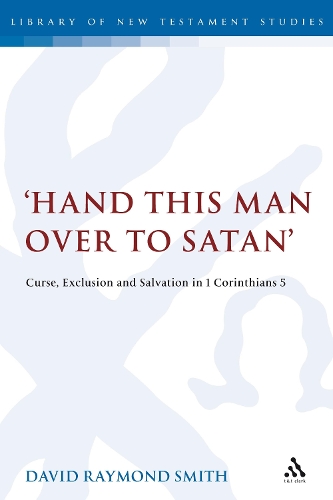
Hand this man over to Satan': Curse, Exclusion and Salvation in 1 Corinthians 5
(Hardback)
Publishing Details
Hand this man over to Satan': Curse, Exclusion and Salvation in 1 Corinthians 5
By (Author) Dr David Raymond Smith
Bloomsbury Publishing PLC
T.& T.Clark Ltd
13th April 2009
United Kingdom
Classifications
Tertiary Education
Non Fiction
Criticism and exegesis of sacred texts
227.2067
Physical Properties
Hardback
224
Width 156mm, Height 234mm
490g
Description
1 Corinthians 5:5 is a curious passage which has been variously interpreted by scholars. For some, it denotes a magical curse which is designed to cause the physical death of the sinner. Others have found such an interpretation unpersuasive. Instead, they maintain that Paul's words at verse five are to be understood as a metaphor for exclusion from the Corinthian community. So, the errant Corinthian is not to die by a curse, but is to be excluded.
This work argues for the former interpretation by marshalling a range of the most recentspecialisedmagical material, which has not been considered by other works in relation to 1 Corinthians 5. It fully acknowledges the weaknesses of previous magical interpretations, and metaphorical approaches to the passage. Instead, it presents a fresh magical reading of not only 1 Corinthians 5:5, but the whole of 1 Corinthians 5within its wider context of the apostle Paul's letter to the Corinthians.
Reviews
'The brief concluding remarks raise hermeneutical implications for the relationship between historical studies and the implications for contemporary church practices. A challenging question in light of the curse interpretation supported here.' 'This is a helpful contribution to Pauline studies and broadens understandings of the role of curses and magic in ancient society.' Expository Times, August 2010
Author Bio
David Raymond Smith has studied at International Christian College, Glasgow, University of Glasgow (graduating B. D. [hons] First Class]), Princeton Theological Seminary, USA (graduating Th.M. New Testament); and the University of Durham (graduating Ph.D. New Testament). He is currently studying at the University of Edinburgh towards a PGDE (Secondary) in Religious Moral and Philosophical Studies.
